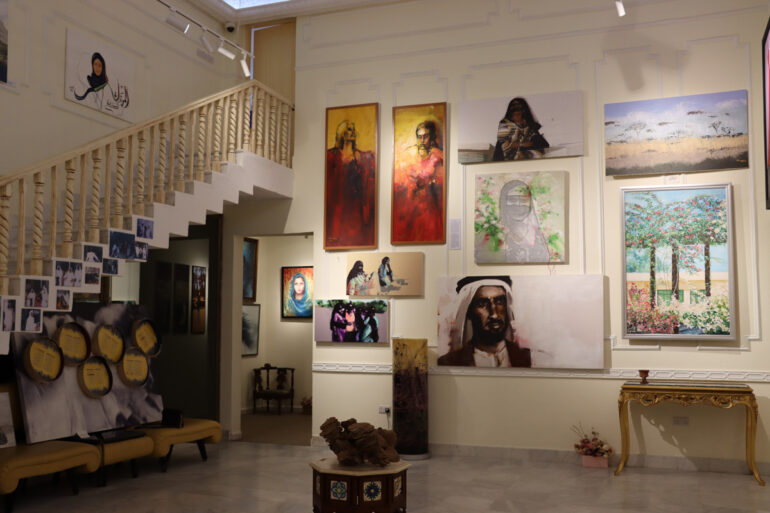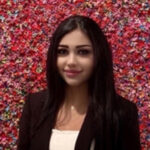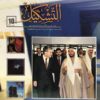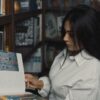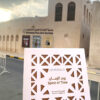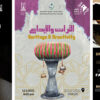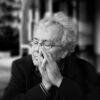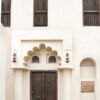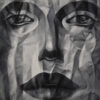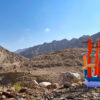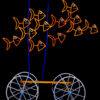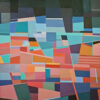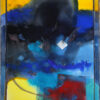
Prof. Rafia Ghubash
- A History of Accomplishments
- The first female psychiatrist in the UAE
- Founder of “Women’s Museum”
- Founder of “House of Creativity” Museum
- Held the position of Dean of the College of Medicine at “Emirates University”
- Former President of the Arabian Gulf University in Bahrain
- Worked on the publication of the “Women’s Encyclopedia”
Where should we start to speak of Prof. Rafia Ghubash? We might go back to a time of facing difficulties, rough living, or the obscurity of the Daoism stations. Or, we could speak of a journey of learning, persisting, defiance, and self-proving in a world full of challenges. Or perhaps we should speak of a track record full of accomplishment, a journey of success, and never-ending ambition. Should we reveal this counter side, which is a passion for art and blessing of talent, because Prof. Rafia Ghubash, and if it weren’t for choosing scientific studies, especially choosing a career in medicine, would’ve been one of the top artists in UAE? However, this passion was translated into an individual creative initiative, launched by Prof. Rafia Ghubash, named “House of Creativity”
She is, without a doubt, an exceptional woman. She’s one of the most prominent intellectual and human rights activists,
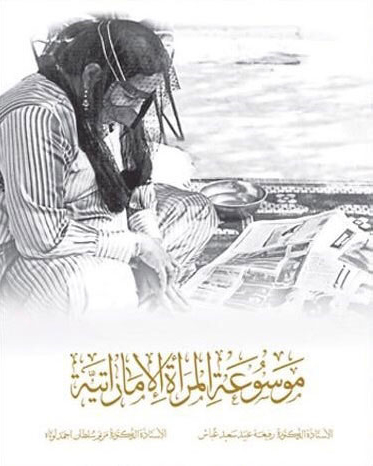
concerned with promoting Arab women and protecting their rights.Prof. Ghubash founded the Women’s Museum in Dubai. A cultural initiative, the first of its kind in the Arab World, to spot the light on the pioneer women, celebrate their achievements, and highlight their contributions. Women’s Museum is the first museum for women in the UAE, illustrating exceptional women who played vital roles in this country.
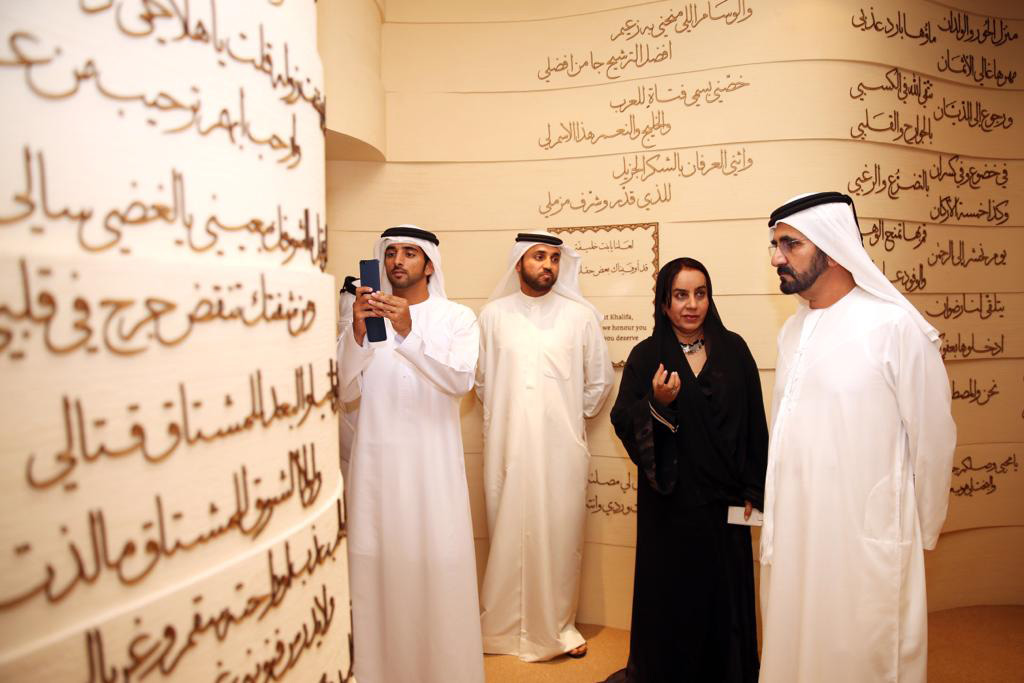
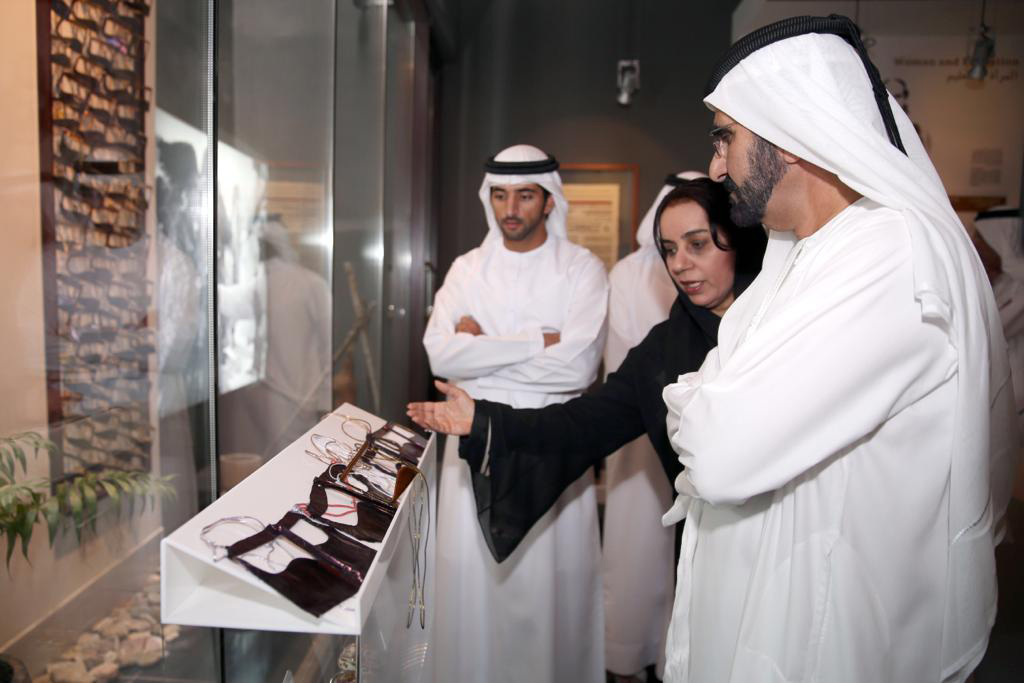
His Highness Sheikh Mohammed bin Rashid Al Maktoum, Ruler of Dubai, His Highness Sheikh Hamdan bin Mohammed Al Maktoum, Crown Prince of Dubai, and Prof. Rafia Ghobash during the opening of “Women’s Museum”, 6/12/2012. Courtesy of Prof. Rafia Ghubash
Prof . Rafia Ghubash is one of the Arab women leaders, who managed to make high-level achievements. She is the first Emirati psychiatrist, the first to gain the title (Professor) in psychiatry, and the first woman to become the University President of a regional university – Arabian Gulf University in Bahrain, for 8 years.
She published numerous books and researches, in which she documented the history of UAE, and its cultural and artistic heritage. One of which was a book about her grandfather, who was a poet, titled “Historical Pages from the Live of poet Hussein Bin Nasser Lootah”, and was published in 2009. Another book about Ousha bint Khalifa Al Suwaidi titled “Ousha bint Khalifa Al Suwaidi, Biography and Complete list of Works”. In addition to the “UAE Women Encyclopedia”, in which she documents the careers and achievements of Emirati women. The encyclopedia lists the women according to their specialty, was its politics, economy, medicine, art, or many others. Adding to those, another book by Dr. Ghubash is “A Woman Ahead of her Time”, in which she documents the biography of her late mother “Ousha bint Hussien” – May God have mercy on her soul – who greatly influenced Dr. Rafia’s life and work.
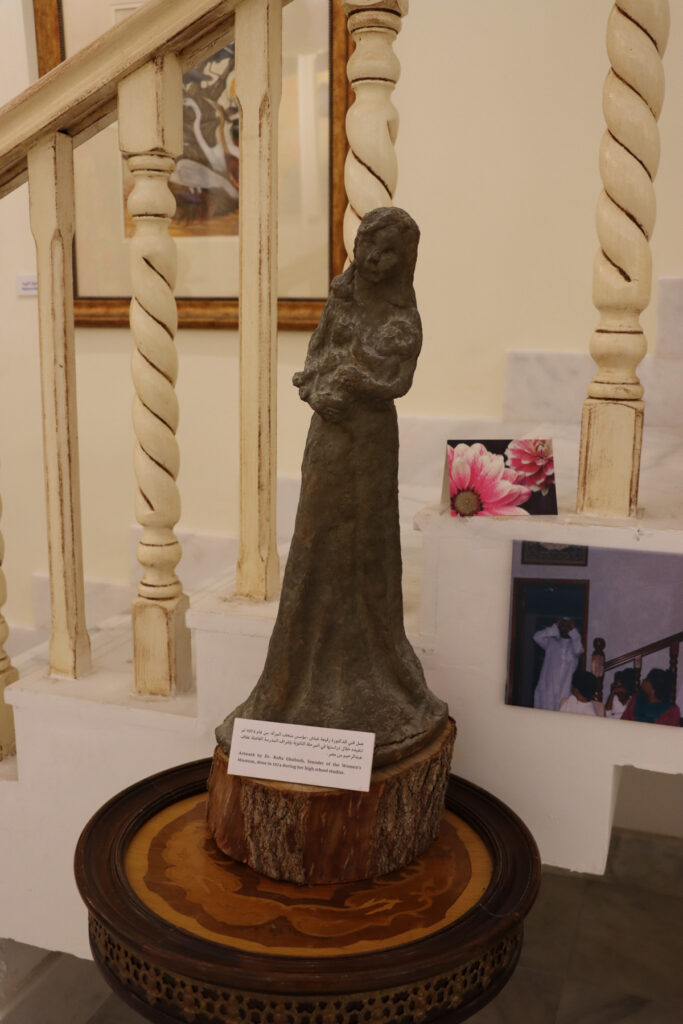
Rafia Ghubash has gone through many experiences, which helped shape her intellectual personality and cultural identity. One of which is learning the Quran at the hands of one of her relatives, who was Mutawaa – Pious woman “Fatima”, as she stayed with her at her relatively simple residence. “At that stage, I was living with the Mutawaa, watching my mother’s splendid house from afar. However, and in spite of the financial poverty at my residence, there was an emotional and scientific richness. The Mutawaa took pride in me in the neighborhood and she was always encouraging me” she says. She also tells us about her upbringing where she says “I was born to a financially capable family. My mother was an exceptional woman, and she was self-made, as she worked in commerce fields, and she admired science and intellect. She also had a nationalistic incline and had this Arabism feeling deep-rooted in her veins. She was influential, a person of intellect, and had these humane attitudes. She used to discuss anything I write with me, and speak to me about the essays I write, as I had, at the time, a column in “Al-Bayan” newspaper named “Beautiful Faces Among Us”, and “Although I wasn’t, emotionally, the closest to my mother, but we always enjoyed these intellectual dialogues and never-ending talks. She had this impact on me that contributed to building my intellectual and cultural identity. I was brought up loving science and knowledge, as knowledge was my daily nourishment. I was eager to obtain it and re-narrate it in a different spirit.” Dr. Ghubash studied medicine at Cairo University, then specialized in psychiatry, and got a Ph.D. in Social Psychiatry and Psychiatric Epidemiology at the University of London in 1992. The Ph.D. didn’t suffice, as she continued her studies to obtain 6 high academic degrees. She was appointed Dean of the Faculty of Medicine and Health Science at United Arab Emirates University in Al-Ain in 2000. Not long after that, she was assigned the position of Arabian Gulf University in Bahrain President for 8 years. She was the first woman to occupy those two positions. In addition to all of that, she learned how to play the piano and the guitar, as she was often repeating that “life is too short to learn and achieve all that we dream of.”
“House of Creativity” Museum
“House of Creativity” is a cultural initiative aiming to document the art movement in the UAE, gather Emirati artists and creative minds under one roof, and to build bridges of communication with other cultures.
The museum showcases the creative innovations of Emirati artists, from different generations, thus reflecting the creative spirit deep-rooted in the artistic scene of UAE, and highlighting the Emirati splendid identity and environment. The museum also organizes some accompanying activities such as organizing galleries, meetings, dialogues, and hosting researchers, art critiques, and artists, in addition to publishing cultural and art books. The museum is located at Al Hamriya, Dubai, it happens to be her late mother’s house “Ousha bint Hussien”. The house was built around (1968 – 1969), and it is still in a good shape with all of its unique details. Dr. Rafia wanted to host Emirati artists at her family house, in which she lived, and every corner of it has these nostalgic vibes loaded with memories and events she has experienced with her family.
The house has 6 rooms and 3 halls, one of which has a distinguishingly high roof and high marble stairs. The house, with all its details and external yard, is an example of the ancient traditional Emirati house. Dr. Rafia tells us “we moved into this house back in 1970. Its design and structure put us in a state of astonishment. It was among the first big houses with a high roof. More so, the lady of the house, my mother, was an exceptional woman, way ahead of her time with her intellect and culture.
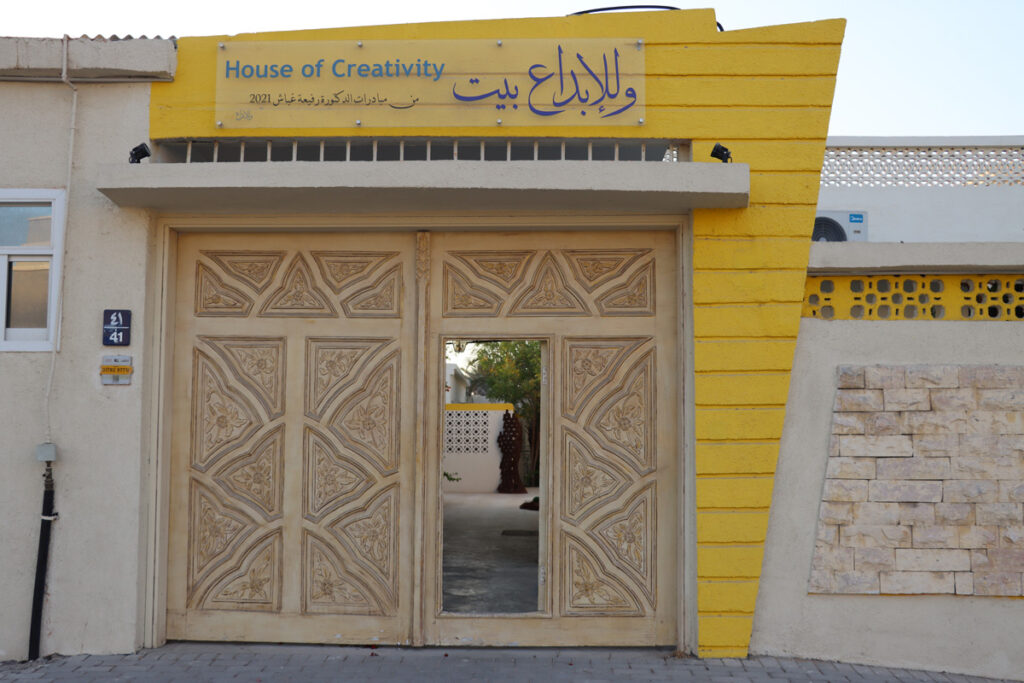
She filled the house with joy and pride, as many prominent figures were visiting us; rulers, sheikhs, and Arab leaders. They used to visit us during Eids just to say hello, and she used to welcome them, wrapping her Abaya around her, along with her decency, values, and cultural heritage. I grew up in a house more like an establishment, where 35 people lived. With every corner narrating a story and recalling memories that filled the place with energy, vividness, and life.”
Prof. Ghubash was keen to dedicate a space to showcase an art piece for each artist, as well as dedicating some rooms to certain artists such as Dr. Najat Makki, and dedicating other rooms to certain types of arts such as calligraphy. It also had a room inspired by “Scheherazade” by Asmaa Al-Ghurair, and another room for artist Aisha Al Suwaidi in which she documents the history of UAE by simulating Postage stamps with artistic pieces. The number of artists exceeded 80 artists, among them we mention Abdul Qader Al Rais, Abdulraheem Salim, Fatma Lootah, Salma Almarri, Azza Al Qubaisi, Salem Aljunibi, Khalil Abdulwahid, and many others, and from different generations.
This passion for visual arts with Rafia Ghubash goes back to school desks. The visitor of “House of Creativity” would see a sculpture of a woman created by her in 1972. It indicates talent and clear knowledge of the perspective and the principles of sculpture. She says “back when I was a child, I used to collect pictures of artwork and hang them on the walls of my room. Now I collect artworks. I collected some paintings from Abbas Almosawi, Bahraini artist, and after I faced some difficulties while establishing the museum, I hung those paintings on the walls of the house, which greatly helped me feel the certainty that I can build a museum. Now, I have a huge collection of artworks for many artists, plus, some artists are always keen to gift some art pieces to the museum. This started to shape a humane dimension to the museum, due to their constant visits and participations, holding intellectual, cultural, and artistic gatherings, and dialogues, and I greatly appreciate these efforts, which further encourage me in my journey to serve art, culture, and science.” For Dr. Rafia, art is like poetry, as they are both a product of human sentiment, from the depth of their experience and struggles. She says “struggle leads the writer, the poet, and the artist to mature, as it allows the mind and the heart to mature. The personality has two ways to deal with the struggles: they’re either a trial from which you learn patience, or they’re distress for which you detest life.” Dr. Rafia also states that she can recognize an honest work of art, within which you find talent and creativity, from experimental work, in which you can’t find depth or feelings.
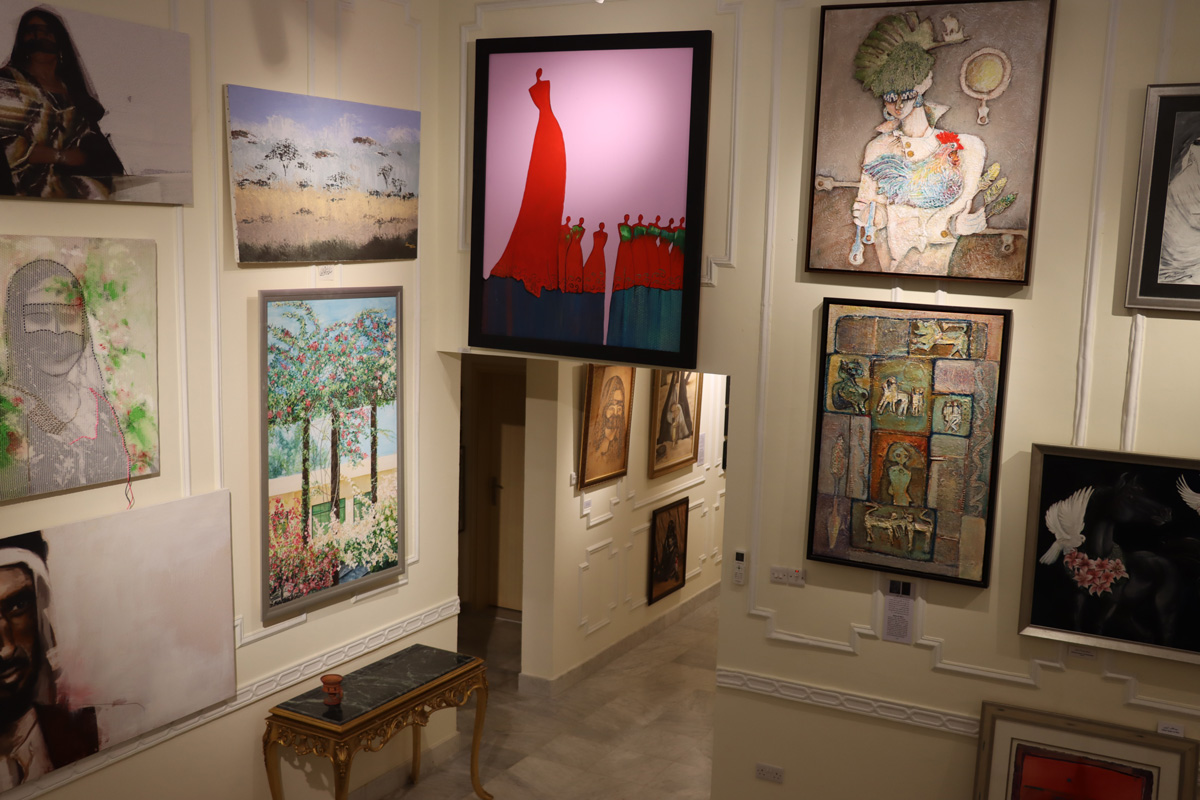

The House of Creativity Museum, 2022.
Prof. Rafia’s experiences, struggles, and difficulties embellished and shaped her, thus making her a more humble, down-to-earth woman. They made her closer and more relatable to people, and made her appreciate art and artists more. Thus, resulting in her founding “House of Creativity” in a house that is of utmost beauty and originality in UAE.
Art historian, curator, visual artist, & editor-in-chief of AlTashkeel magazine. she holds a Ph.D. with distinction in "Art & Science of Arts," in addition to holding an MFA in Fine Arts and an MA in Philosophy of Art. She has numerous published books that provide documentation for Art in the Arab World.

